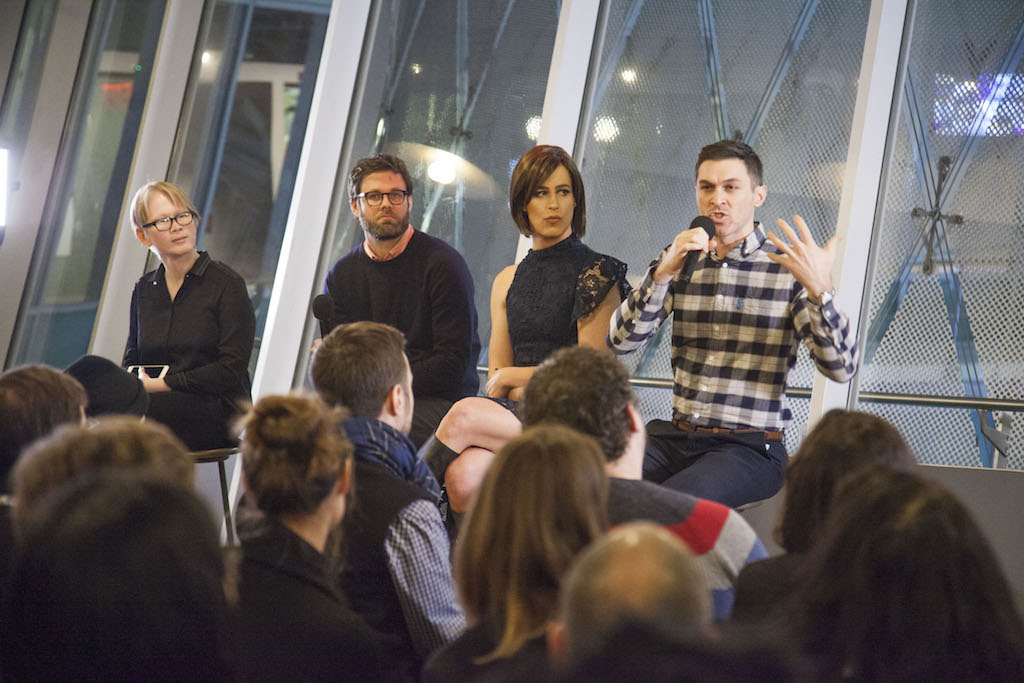For Natalie Egan, the internet used to be a frightening place. This was back when she was living as a man, and she was terrified that some small detail of her life — like her browser history filled with websites selling women’s clothing — might give her away.
“That’s why I was constantly in fear of being outed as trans,” she said. “The way I approached the internet was very, very cautiously.”
Two years ago she came out, changing all her social media profiles to reflect her female identity. The outpouring of support she felt online was a “milestone.”
A WeWork member, Egan is the founder of a diversity and inclusion tech platform called Translator. She was one of four speakers on a fast-paced panel discussion called “Preserving the Digital Lifeline for LGBTQ People,” held at New York’s WeWork Fulton Center. Along with WeWork, the event was sponsored by GLAAD, the Webby Awards, and Condé Nast’s new LGBTQ website Them.
Moderator Meredith Talusan, senior editor of Them, said that without the openness of the internet, she might not have come out.
“Without net neutrality, it’s possible I might not be trans,” said Talusan. “It’s possible that the online communities essential for me to be able to transition might not have been there in the first place.”
That’s the power of technology for many people. It’s a connection to the larger community.
“We see everyday that the internet is a place to see the role models we can’t see in real life,” said Jim Halloran, chief digital officer of the LGBTQ advocacy group GLAAD. “It’s especially true for those living in rural areas.”

But despite all its benefits for the LGBT community, the internet is still a place where there’s plenty of bias — some intentional, some not. David-Michel Davies, executive director of the Webby Awards, said that algorithms designed to target potential candidates for high-paying jobs, for example, might overlook LGBTQ people.
“That’s because the way they built the algorithm was how they did it in the past,” Davies said. “It’s a huge, huge issue.”
Another issue is how forces on the internet working to get pro-LGBTQ messages silenced. Halloran recounted how a video his organization posted of actor Debra Messing accepting a GLAAD Award got nearly a million views — primarily because of an organized campaign designed to make it less likely to be shared on YouTube.
“They are trying to systematically affect the algorithms so our content isn’t shared in our own community,” said Halloran. “This isn’t a huge group of people, either. It’s a small number of bad actors using sophisticated digital tools.”
The solution? According to Halloran, it’s getting a more diverse group of people behind the scenes at tech companies where a lot of these decisions are made. He announced that GLAAD has formed a digital task force of advocacy groups, tech companies, and community leaders to combat online anti-LGBTQ bias.
“The important thing is keeping this conversation going,” he said. “I don’t think one person or one entity has to shoulder the burden. It’s not just the tech companies or the government. It’s all of our shared responsibility.”
Photos by Frank Mullaney




